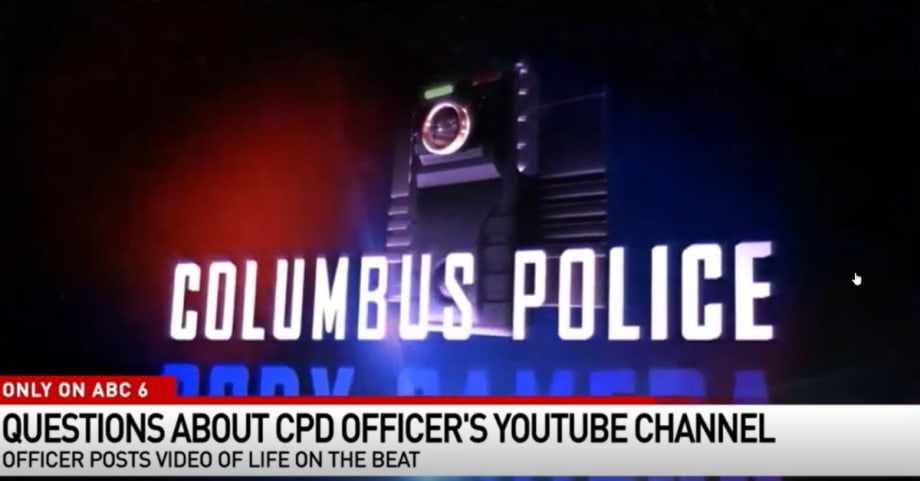The Columbus Division of Police and Columbus Public Safety departments are looking into complaints filed by citizens about an officer’s YouTube channel, ABC6 reported. The officer has posted a nine-minute video response rebutting the complaints about his Columbus Police Body Camera channel.
ABC6 chose not to name the officer because he has not been charged with a crime or any wrongdoing. The officer who created the channel declined an on-camera interview with ABC 6, but in his video response he said, “I have seen a lot of stuff in comments lately about how I am exploiting these poor families. This that and the other, trying to get attention and fame for myself, which is not what I am doing.”
The officer requests and pays for the public records from Columbus Police, just as any citizen can do, ABC6 reported.
“When I set out to create this channel, I wanted to show people what police officers are like 99 percent of the time that they're doing their job,” said the officer. He explained the majority of actions depicted on the channel are mostly “what cops do most of the time, just responding to dispatch runs.”
Columbus-based attorney Mark Weaver has a statewide reputation in media law, social media, and First Amendment practice. “If a citizen gets a record from the government, they can do whatever they want with it, whether a paper, a photo or even a video. They can post it on social media, on the web —it’s public record. Police officers shouldn’t have more rights, but they shouldn’t have less rights. Americans are fascinated by police work. Cops. Live PD. No one is following around plumbers I don’t think. All too often people are critical of police officers without really understanding the job they do. So, this may be a window for the general public to see how difficult it is to be a police officer. State lawmakers have balanced that by saying body cam footage is a public record but there are 17 exceptions where you should blur out certain things,” Weaver said.
In a written statement, Columbus Public Safety said “Police body-worn cameras are an invaluable tool when it comes to transparency and accountability. That transparency can sometimes conflict with privacy concerns. Ohio public records law dictates how we strike the balance between those interests. We expect all of our personnel to act with compassion and empathy toward everyone they encounter, especially when that person is in crisis. There are limitations to what the Division can do when it comes to the off-duty actions of officers.”












